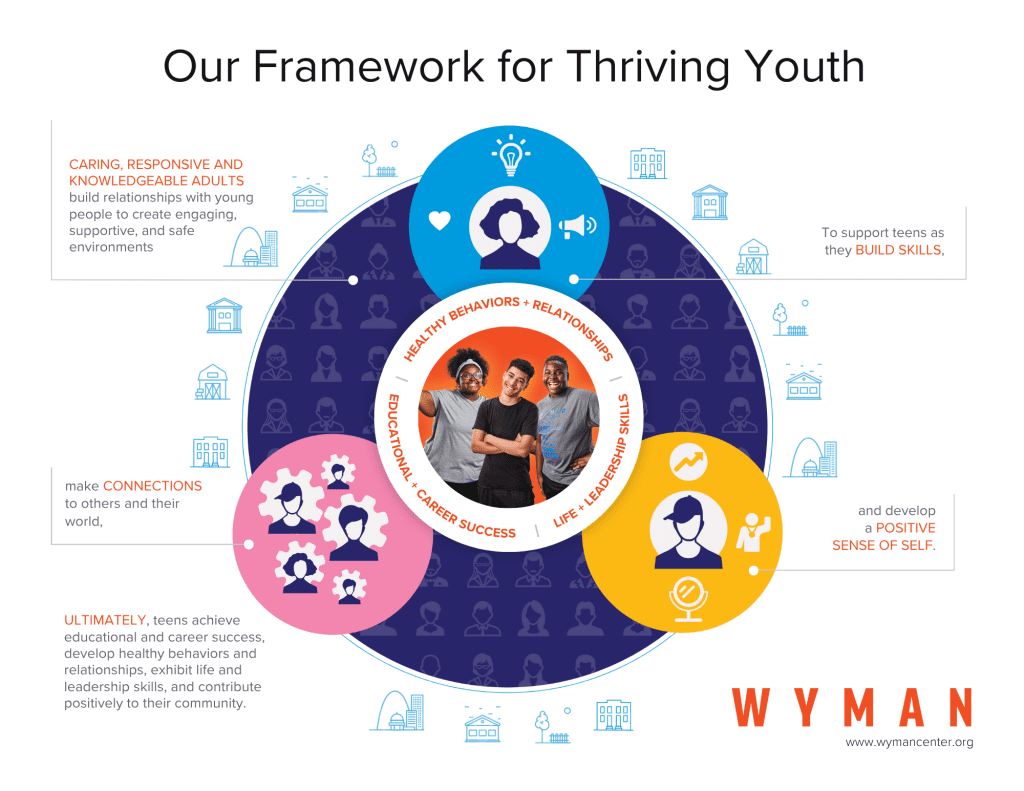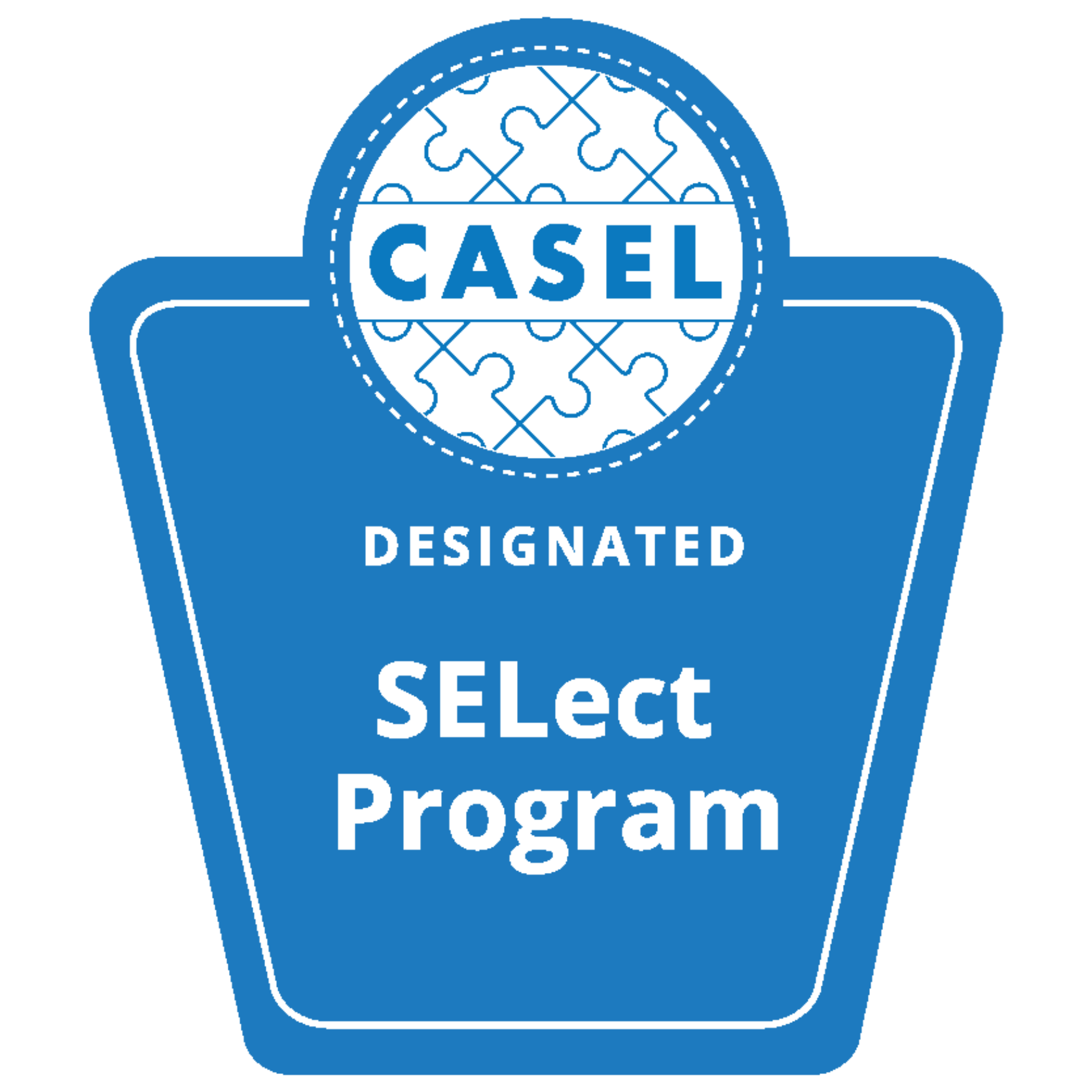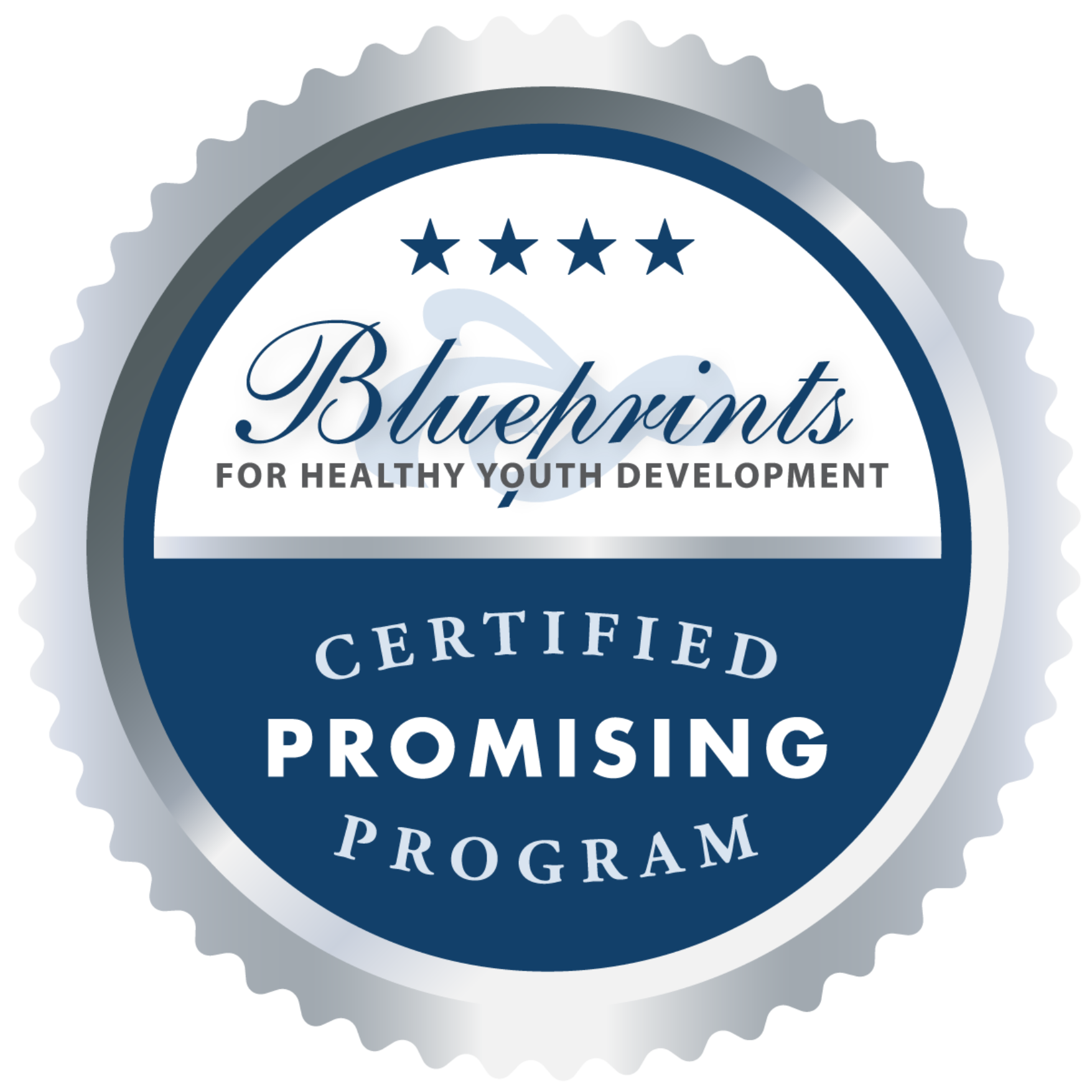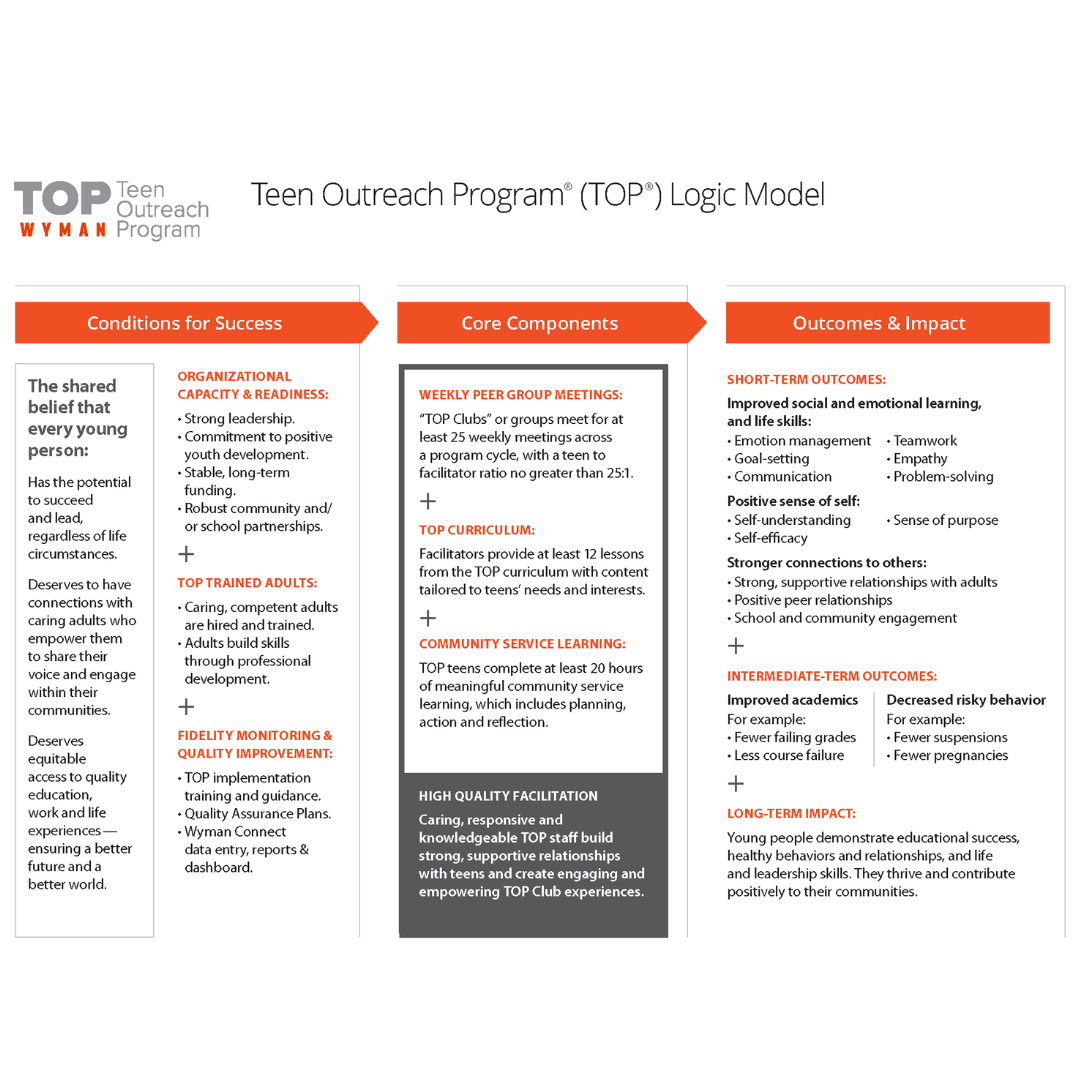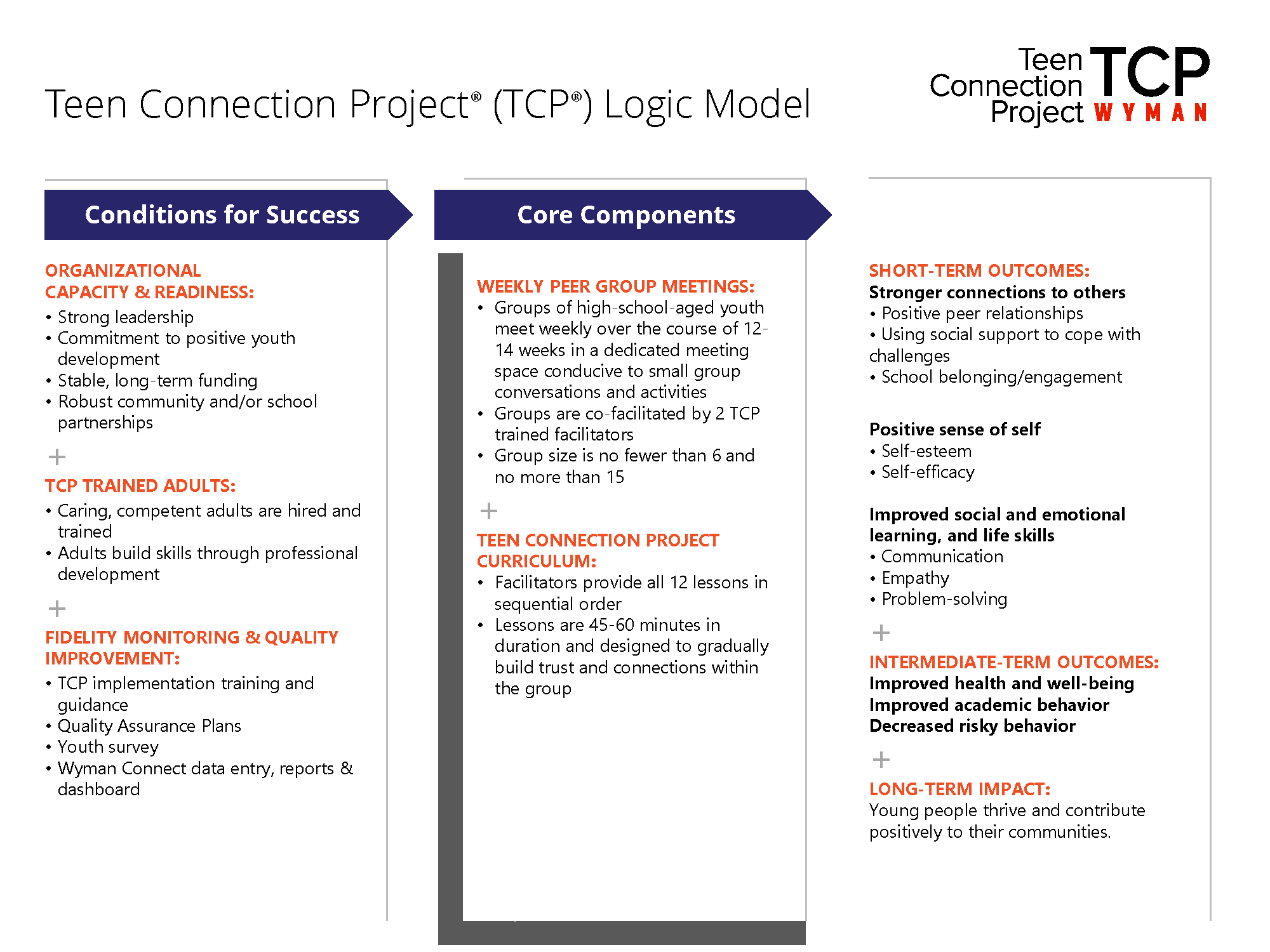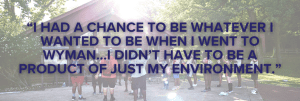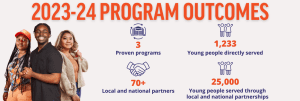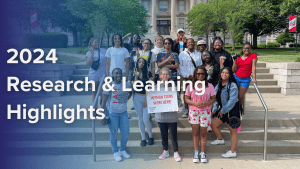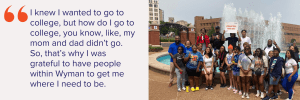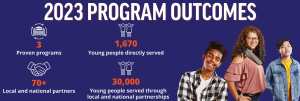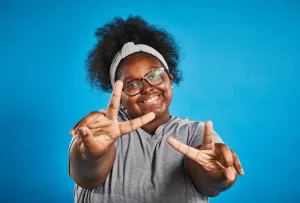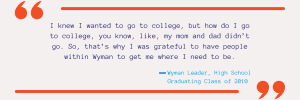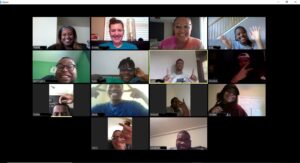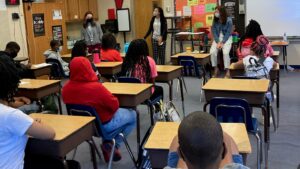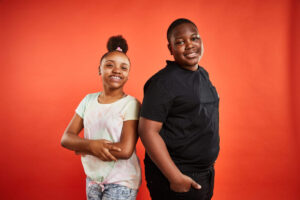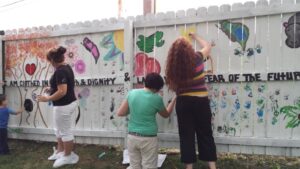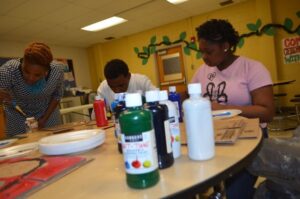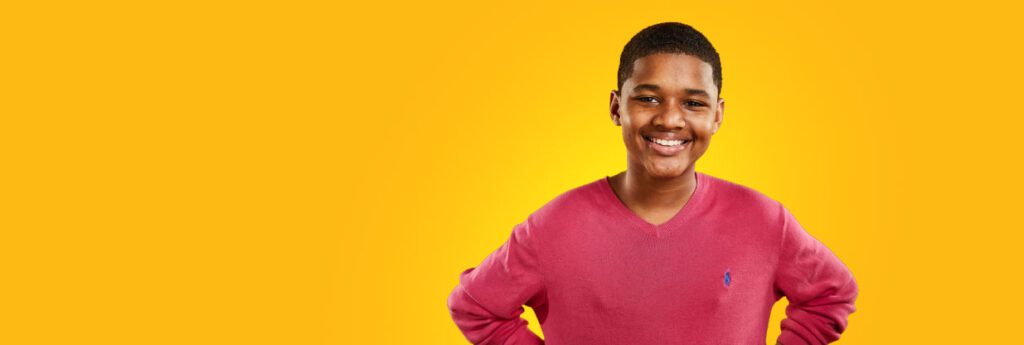
Research and Learning at Wyman involves:
- Measuring outcomes and using the results for quality improvement.
- Designing, developing, and evaluating innovations.
- Accelerating learning through local and national knowledge exchanges.
Approach and Theory of Change
Wyman programs are rooted in Wyman’s Framework for Thriving Youth, a carefully crafted theoretical foundation for Wyman’s programming which captures the essential elements of a transformative youth development approach and the ultimate outcomes that we strive for all young people to achieve: educational success, healthy behaviors and relationships, and life and leadership skills.
Our Framework for Thriving Youth emphasizes building skills, developing a positive sense of self, and making connections to others as key levers to achieving these outcomes. Surrounding this work are caring, responsive, and knowledgeable adults who build relationships with young people to create engaging, supportive, and safe environments where young people are supported to achieve positive growth.
Our Framework is grounded in youth development research and serves as the compass for all Wyman programming.
Program logic models map out each program’s specific components and strategy for change within the context of this larger Framework and guide our outcomes measurement approach.
Outcomes show the positive impact of our programs. View our 2023-2024 program year outcomes here.
Results and Recognition
Summary of TOP Results
Summary of TCP Results
Wyman Leaders Study Summary
TOP Evidence-Based Recognitions
TCP Evidence-Based Recognitions
Both TOP and TCP are recognized as Promising Programs by Blueprints for Healthy Youth Development and received CASEL’s highest designation for quality programming, among several other evidence-based recognitions.
Case Studies and Presentations
Implementing the Teen Outreach Program with Special Populations
Watch this video to learn more about Wyman’s Research and Learning process
Research and Learning in 2024
Wyman’s Research & Learning department partnered with Dr. Florian Sichling to study the Wyman Leaders program and found that young people who attended one of Wyman’s higher education partner schools were more likely to complete a degree within six years than those who attended non-partner schools. This study highlights the importance of relationships between organizations; ongoing, collaborative monitoring of student experiences and needs; intentional efforts to build trust and foster and foster a sense of belonging in campus; and the impact these efforts have on student success.
Research & Learning also explored the impact of Wyman’s scholarship opportunities on Wyman Leaders students and found that those opportunities promote strong persistence and graduation rates – often exceeding national benchmarks.
Read our full 2024 Research & Learning Highlights
It is hard to find organizations that are really committed to doing evidence-based work because it’s incredibly logistically challenging. Most organizations…don’t have the resources to do that. So Wyman is unique in that regard and it’s crucial because as you move beyond having powerful anecdotes describing the ways you’ve helped kids, people who want to fund programs and policy makers really want to see the hard data; they want to see rigorously evaluated programs and Wyman is now producing those.
Backed by my research, it’s evident that the collaboration between Missouri State University and the Wyman Center significantly bolsters the success of first-generation and low-income students. The data underscores that this partnership bridges educational gaps and cultivates a sense of belonging and holistic growth, aligning perfectly with the institutions’ dedication to fostering inclusive excellence.


